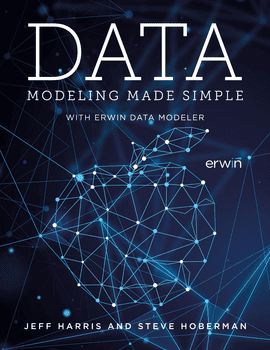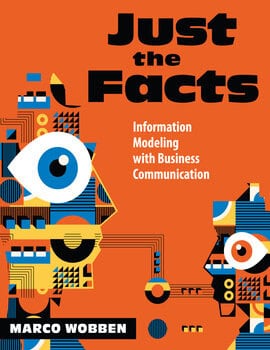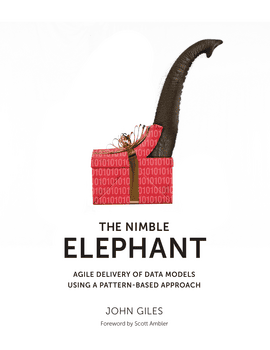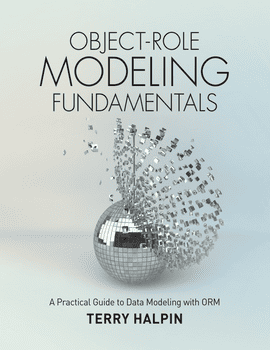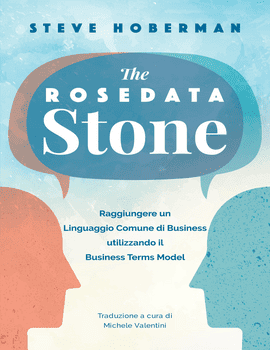Data Modeling Made Simple with erwin DM
Data Modeling Made Simple with erwin DM, by Jeff Harris and Steve Hoberman
Master erwin DM to deliver robust and precise designs for both operational and analytical projects.
Topics
PART I: DATA MODELING INTRODUCTION
Chapter 1: What is a Data Model?
Chapter 2: Why do we need a Data Model?
Chapter 3: Why do we need a Data Modeling Tool?
PART II: ERWIN DM INTRODUCTION
Chapter 4: Overview of erwin DM
Chapter 5: erwin DM Workspace
Chapter 6: erwin DM Tour
Chapter 7: Building the Foundation with erwin DM
PART III: DESIGN LAYER MODELING
Chapter 8: Design Layers Overview
Chapter 9: What are Enterprise Data Models?
Chapter 10: What are Conceptual Data Models?
Chapter 11: What are Logical Data Models?
Chapter 12: What are Physical Data Models?
Chapter 13: What are Operational Data Models?
PART IV: LOGICAL DATA MODEL COMPONENTS
Chapter 14: What are Entities?
Chapter 15: What are Domains?
Chapter 16: What are Attributes?
Chapter 17: What are Key Groups?
Chapter 18: What are Relationships?
Chapter 19: What are Validation Rules and Default Value Rules?
Chapter 20: What are Subject Areas and ER Diagrams?
PART V: PHYSICAL DATA MODEL COMPONENTS
Chapter 21: What are Tables?
Chapter 22: What are Columns?
Chapter 23: What are Views?
Chapter 24: What are Indexes?
PART VI: ERWIN DM ADVANCED FUNCTIONALITY
Chapter 25: User Defined Properties (UDPs)
Chapter 26: Naming Standards
Chapter 27: Forward Engineering
Chapter 28: Reverse Engineering
Chapter 29: Report Designer
Chapter 30: Bulk Editor
Chapter 31: Complete Compare
PART VII: BEYOND ERWIN DM
Chapter 32: erwin DM NoSQL
Chapter 33: erwin Data Catalog
Chapter 34: erwin Data Literacy
Steve and Jeff start from the basics, explaining data modeling concepts and how to get up and running with erwin DM (erwin DM). Through a hands-on approach, business analysts, data professionals, and project managers will learn step-by-step how to build effective conceptual, logical, and physical data models. Complete the stages in identifying essential business requirements, designing the logical data model, transposing those logical modeling objects into physical tables and columns, and even generating the implementation database scripts.
This book contains seven parts. Part I provides a foundation in data modeling and Part II a foundation in erwin DM. Part III covers the design layer technique and its application using erwin DM, distinguishing conceptual, logical, physical, and operational data models. Part IV covers entities, domains, attributes, key groups, validation rules, default rules, and subject areas, along with how to implement them using erwin DM. Part V explains the physical data model and how to convert a logical data model to a physical data model in erwin DM. Become confident creating tables, columns, indexes, and views. Part VI reveals advanced features available within erwin DM, including user defined properties, naming standards, forward engineering, reverse engineering, complete compare, report designer, and the bulk editor. Part VII explains several important tools to use in combination with erwin DM, including erwin DM NoSQL, erwin Data Catalog, and erwin Data Literacy.
About Jeff and Steve
Jeff Harris is Principal Data Architect for a Fortune 200 company. He has over 30 years of IT experience and has specialized in data modeling and data architecture for over 20 years. His experience has led him to work on erwin DM projects for large corporations in South Africa, New Zealand, Europe, UK, and the USA, in banking, government, logistics, retail, freight, and petroleum. His expertise includes the implementation of data warehouses, operational data stores, and enterprise data architectures.
Steve Hoberman has been a data modeler for over 30 years, and thousands of business and data professionals have completed his Data Modeling Master Class. Steve is the author of nine books on data modeling, including The Rosedata Stone and Data Modeling Made Simple. Steve is also the author of Blockchainopoly. One of Steve’s frequent data modeling consulting assignments is to review data models using his Data Model Scorecard® technique. He is the founder of the Design Challenges group, creator of the Data Modeling Institute’s Data Modeling Certification exam, Conference Chair of the Data Modeling Zone conferences, director of Technics Publications, lecturer at Columbia University, and recipient of the Data Administration Management Association (DAMA) International Professional Achievement Award.
Faculty may request complimentary digital desk copies
Please complete all fields.
